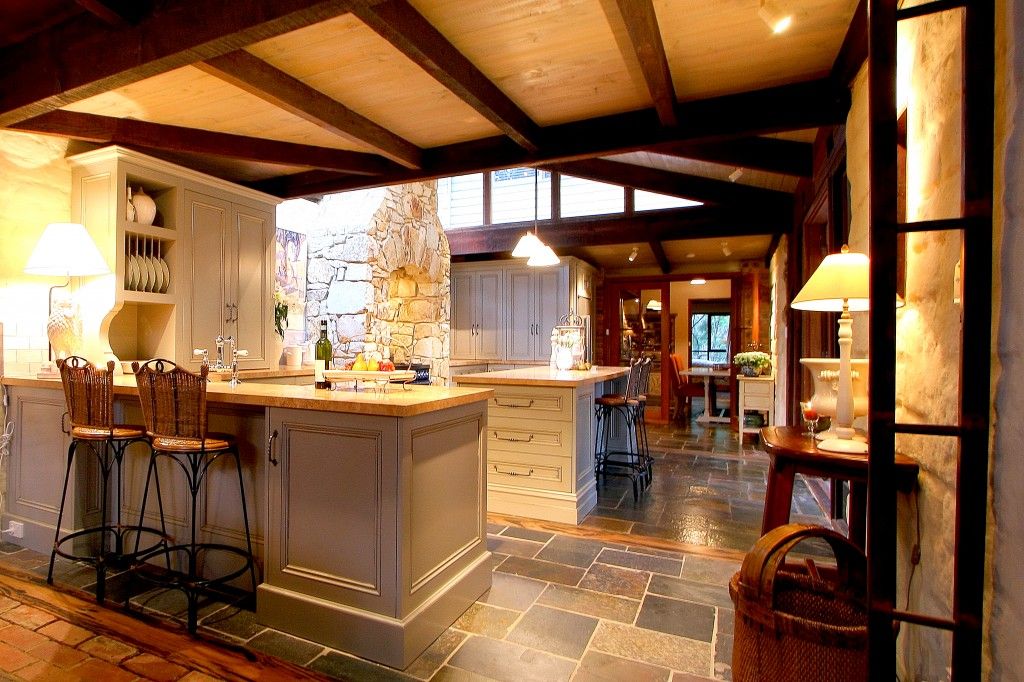Undergoing a home renovation in any country is always going to be a difficult undertaking, but the stress can be amplified when it comes to a South of France property. You may not be familiar with the rules and regulations, or you may struggle with the language barrier when communicating with tradespeople. A professional surveyor who can co-ordinate the construction project can be very useful in these situations.
For many, the dream of purchasing and “doing-up” a rambling chateau, beachfront villa or quaint (but derelict) French farmhouse will never come to fruition, but if you decide to take on the challenge, the experience can be very rewarding. These are the most important considerations before choosing to renovate your South of France property.
Have you had the property surveyed and set a budget to cover the work?
You may be eager to jump in and get started, but the very first thing you must do is to get your South of France property surveyed so that you can get a proper scope of the work that must be done. It’s particularly important to get the plumbing and electricity checked and have the integrity of the roof and foundations assessed. Once this has been completed, you can sit down and create a strict budget for the renovation in its entirety.
It’s all too easy for good intentions to be cast aside if you don’t closely adhere to your budget. You should always get quotes from tradespeople and materials providers in advance and make sure you shop around to ensure that you’re getting the best offer possible. There are occasionally cases of estimates being bumped up when it comes to working for an expat, so try your best to be friendly with the neighbours and get their input when you can.
Do you have the space?
If you’re intending on carrying out an extensive renovation you need to be certain that there’s enough space around your property to guarantee access for builders’ vehicles and materials. Many rural South of France properties will not have properly tarmacked roads, and built up areas may have narrow pathways that larger vehicles will struggle to turn around in. There may also be overhead cables or low bridges that vehicles cannot pass under safely.
Additionally, you will need to ensure that there is sufficient space to store new materials and any rubbish before it can be taken away. If space and/or access is limited, you will need to carefully consider the pace of your renovation. Work can still be completed, but it’s unlikely that you’ll be able to overhaul the entire property on a tight schedule.
Do you need planning permission?
If you’re intending on adding space to your property with an extension of more than 20m2, widening entryways or installing larger windows, you’ll need to obtain planning permission (or permis de construire) from your local town hall.
If the renovation is extensive, and particularly if it’s required to make your South of France property live-able, it’s wise to have a conditional clause in your contract before purchasing that states that the sale is only to go ahead if planning permission is secured. In this case, copies of the application should be sent to the notaire handling the sale. Once the planning permission is issued, the public will have two months to object and lodge a subsequent appeal.
If the work you intend to have carried out is more than 170m2, an architect will have to submit the request for planning permission. Once the work is complete, you have to provide a certificat de conformité that confirms the proposed work was carried out according to plans.
Who will do the work?
It might be tempting to try your hand at a little DIY, but major construction projects are really best left to the professionals. In France, there aren’t really any “jack of all trades” workers. Most tradespeople have specialist skills and will be required on site at different times. It takes careful co-ordination to manage the project. You’ll also need to ensure that the workers you employ have all the necessary insurance and are registered. Charles Mackintosh can help put you in touch with reputable workers and help organise the renovation.
It is possible to have foreign workers come in and complete the project, but it’s unlikely to endear your neighbours to you. Truthfully, the French workers have a much better understanding of traditional styles and can make your renovation appear much more authentic. Be aware though, that the typical working week in France is just 35 hours, with a leisurely two hour lunch break each day, so don’t expect any quick jobs.
If you won’t be there to supervise the work yourself, you may want to hire someone who can do it in your stead. There are rare but highly publicised cases where unscrupulous tradespeople have added unplanned work, cut corners or even abandoned the renovation midway through. A supervisor can help mitigate the chances of this occurring.
Will the garden need tending to?
If your South of France property is dilapidated, it’s highly likely that any accompanying outdoor space will be overgrown and in need of restoration. For smaller projects on property that has been in consistent use, this will probably not be such a concern.
Greenery tends to grow fast in South of France thanks to the all the extra sunshine. By tearing out overgrown plants before beginning your renovation, you’ll free up valuable manoeuvring and storage space for builders and will have a blank slate for designing an idyllic garden when the house is completed.
It may be a big undertaking, but renovating your property will allow you to create the dream home you’ve always wanted in a warm, relaxing environment. Don’t choose to shoulder the burden alone. Charles Mackintosh has decades of experience in managing South of France property renovations and he can help you too. Get in touch today.

